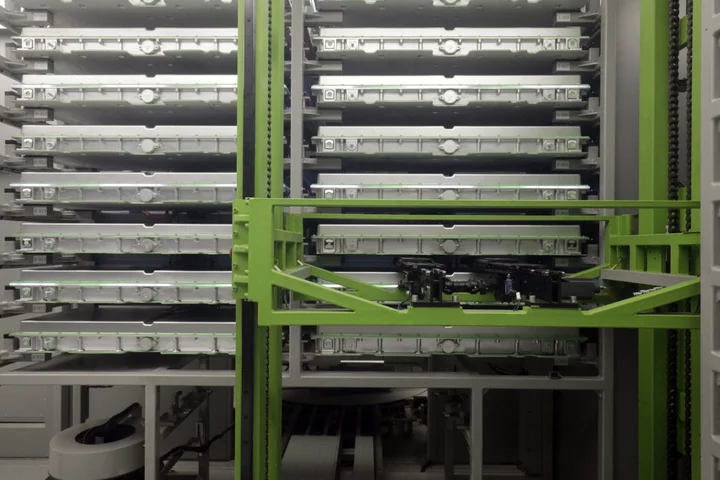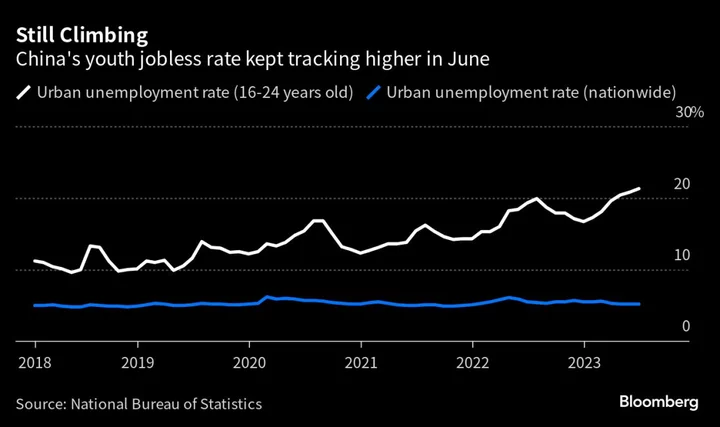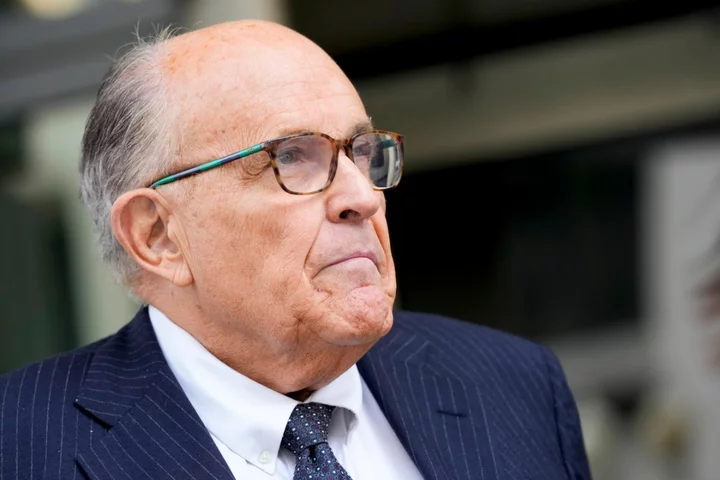Four US lawmakers will travel to Detroit Tuesday to press the chief executives of Ford Motor Co. and General Motors Co. to cut their supply chains’ reliance on China, especially in electric-vehicle batteries.
The trip highlights the domestic pressures the administration faces as it tries to patch up frayed ties with China. Earlier Monday, Secretary of State Antony Blinken reported some progress in those efforts after a two-day visit to Beijing.
The four lawmakers, who all sit on a newly formed House of Representatives China Select Committee, will raise concerns about Ford’s partnership with Chinese auto battery manufacturer Contemporary Amperex Technology Co. Ltd., and auto companies’ dependence on China more broadly, a person familiar with the matter said. The legislators plan to meet Ford CEO Jim Farley and GM CEO Mary Barra, among other officials.
Ford is planning to build a battery plant in Michigan using CATL technology. Virginia governor Glenn Youngkin withdrew his state from consideration for a proposed plant earlier this year, calling the proposal a “Trojan horse” allowing China to undermine efforts to strengthen the US auto industry.
“Ford shares the Committee’s goals of strengthening American competitiveness and establishing EV supply chains in the U.S., and in our meeting tomorrow we plan to share how we’re doing just that,” the company said in a statement. “The wholly-owned EV battery plant we’re building in Michigan is only the latest example.”
A GM statement said company executives meet regularly with elected officials “to discuss issues important to our business, employees, dealers and customers.”
Biden administration officials have expressed concern over China’s advantage over the US in electric vehicle batteries. Chinese firms account for more than half of the EV battery market and satisfy as much as 90% of demand for some battery materials, according to BloombergNEF. Transportation Secretary Pete Buttigieg said Sunday the US needs to take steps to address the problem.
Lawmakers show no sign of letting up their pressure over the Ford-CATL deal and other partnerships — a stance that’s angered China and contributed to strains.
The four US lawmakers — Republicans Mike Gallagher and John Moolenaar, and Democrats Raja Krishnamoorthi and Haley Stevens — are expected to argue that CATL is closely tied to the Chinese Communist Party and has received Chinese government subsidies that allow it to undercut US firms, according to the person. The person asked not to be identified discussing private deliberations.
They are also expected to express concerns about CATL technology they believe was acquired from US educational institutions and companies and will press companies on whether they are sourcing parts for their cars using Uyghur forced labor in Xinjiang province.
Gallagher is the chairman of the House Select Committee on the Strategic Competition Between the United States and the Chinese Communist Party and Krishnamoorthi is the top Democrat on the committee.
--With assistance from Keith Naughton and David Welch.
(Updates with Ford and GM statements in 5th and 6th paragraphs.)









